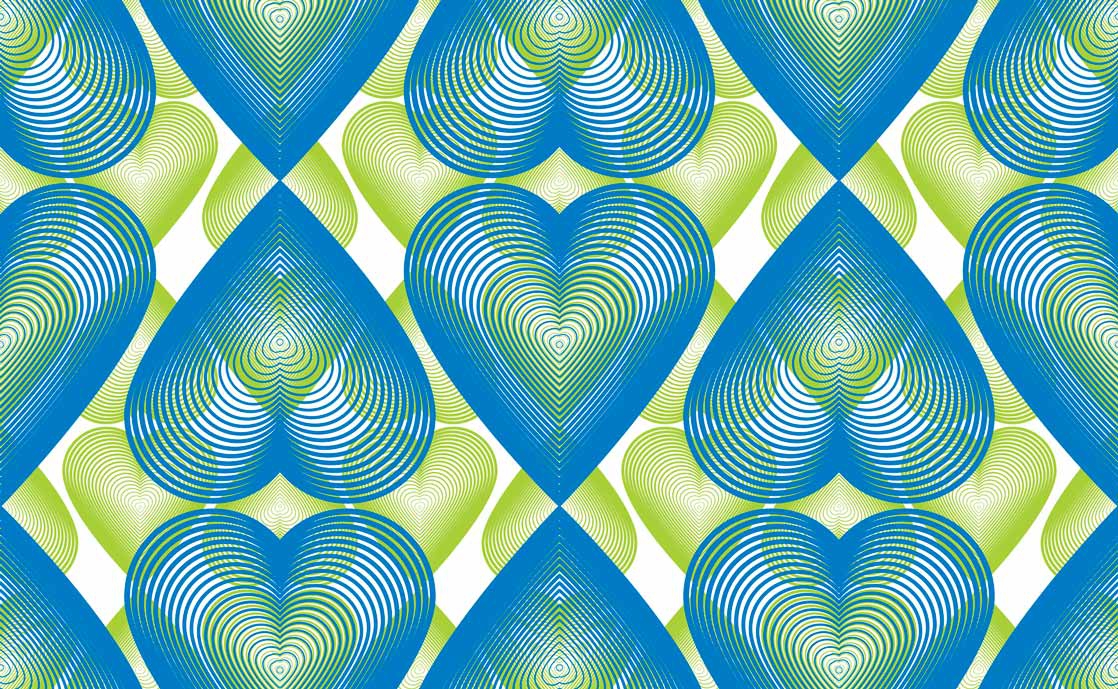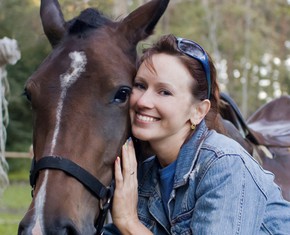The views expressed in our content reflect individual perspectives and do not represent the authoritative views of the Baha'i Faith.
If you’ve ever loved someone with a great love, you might have wondered: What is it in the human heart that creates such a powerful, irresistible attraction to another human being?
Because it feels beyond reason or reasonable explanation, romantic love might feel something like insanity. Our hormones riot. We cannot stop thinking about the object of our love.
We are attracted so intensely because love is a law of our creation, even as gravity is a law of relationships among physical objects.
But whereas the force of gravitational attraction depends on proximity and mass, the physical force of spiritual attraction—the beginning stage of love—increases according to spiritual proximity and the extent, with regard to both quantity and quality, that another being manifests the attributes of God.
So, romantic love is not an illusion after all, not merely a silly fiction invented by Provençal poets. Love, Abdu’l-Baha wrote, is a universal spiritual law—and this law of love does indeed work, whether or not we want it to work:
Love is the cause of God’s revelation unto man, the vital bond inherent, in accordance with the divine creation, in the realities of things. … Love is the most great law that ruleth this mighty and heavenly cycle, the unique power that bindeth together the divers elements of this material world, the supreme magnetic force that directeth the movements of the spheres in the celestial realms.
But the entire process of love is not confined to this initial attraction, nor is its success subject to the incidents and accidents of life, nor is it beyond the operation of free will. We may indeed be blindsided by a collision with the SUV of love, but what happens after that is in our hands. This is why free will plays such a vital role in the second stage of this process.
Because if we are not in a condition of health, we may well be attracted to that which is precisely unhealthy for us, in much the same way that someone who is unhealthy physically will be attracted to precisely the wrong foods or daily regimen. In short, our emotions, regardless of how powerful and intense they may be, are not always the best means for determining how we should respond to our attractions, though certainly we should not ignore them. But until we examine the source of those emotions, we must realize that they may lead us in precisely the wrong direction.
To stress the importance of escaping from or progressing beyond this initial, intense, ecstatic attraction and proceeding to an investigation and comprehension of that to which we are attracted, Baha’u’llah in The Seven Valleys employs the following powerful metaphorical image about proceeding from the stage of ecstatic attraction to the stage of understanding or knowledge:
And if, confirmed by the Creator, the lover escapes from the claws of the eagle of love, he will enter the Valley of Knowledge and come out of doubt into certitude, and turn from the darkness of illusion to the guiding light of the fear of God. His inner eyes will open and he will privily converse with his Beloved; he will set ajar the gate of truth and piety, and shut the doors of vain imaginings.
Of course, the problem is that in the midst of passion, the very last thing we are interested in doing is summoning up sufficient free will to apply our intellect so as to extract ourselves from what seems so wonderfully ecstatic. A brief look at a sonnet by John Donne portrays this dilemma extremely well:
Batter my heart, three-person’d God; for you
As yet but knock; breathe, shine, and seek to mend;
That I may rise, and stand, o’erthrow me, and bend
Your force, to break, blow, burn, and make me new.
I, like an usurp’d town, to another due,
Labour to admit you, but O, to no end.
Reason, your viceroy in me, me should defend,
But is captived, and proves weak or untrue.
Yet dearly I love you, and would be loved fain,
But am betroth’d unto your enemy;
Divorce me, untie, or break that knot again,
Take me to you, imprison me, for I,
Except you enthrall me, never shall be free,
Nor ever chaste, except you ravish me.
Here the speaker desires to love God. Indeed, he really does love God, but he has been caught in the claws of the eagle of love, and feels that he cannot employ sufficient free will to extricate himself from an unhealthy addiction to, or seduction by, some lesser sensual passions. The speaker is not clear what this attraction might be, but since it is ruled over by “your enemy”—presumably sin, Satan, etc.—it is most probably a form of sensual passion that violates religious law and distracts the speaker from his attention to his love of God.
What’s important here is that the speaker is perceptive, intelligent, knows what has occurred and why. We can imagine that if the speaker were a real character instead of Donne’s fictional persona, he might have written a letter instead of a sonnet, something like this:
Dear God,
Thanks a lot for all the Free Will—I tried it out this morning and got the house really clean for the first time! But I have become entranced by this really attractive woman, and, in all candor, I would much rather that You just take care of this thing Yourself.
Sincerely,
John Donne
Had he done so, God might well have written a response that would go something like this:
Dear John,
“Love Me, that I may love thee. If thou lovest Me not, My love can in no wise reach thee. Know this, O servant.”
Love, Forgiveness, and the best of luck! ?
God
That passage in quotations comes from Baha’u’llah’s Hidden Words, a book of mystical aphorisms that helps guide the human heart through every stage of love.
This series of essays is adapted from John Hatcher’s address to the 2005 Association for Baha’i Studies Conference titled The Huri of Love, which comprised the 23rd Hasan M. Balyuzi Memorial Lecture.
You May Also Like
Comments

















whether or not Hell ever freezes over.